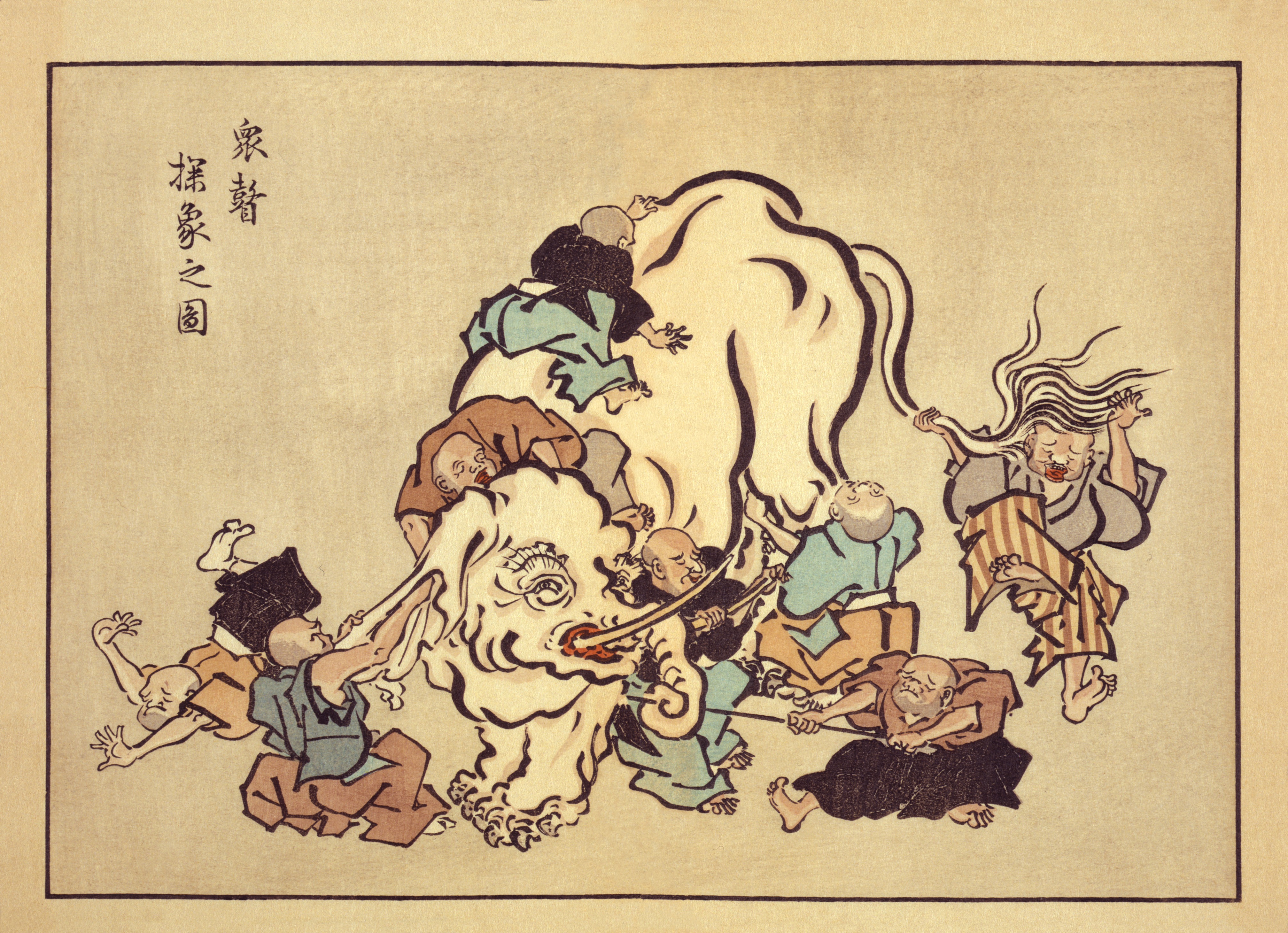We See Only Part of the Elephant: Collective Leadership at BPF
 With our recent move from two Co-Directors to three, BPF staff and board have been contemplating what it means to have a leadership structure outside a more traditional hierarchical model.Personally, I have seen some Co-Directorships that work because the people involved think alike – they trust each other to view the world in similar ways and make similar decisions.Our Co-Directorship is different in that the people involved think differently – we share similar values, but see the world in different ways, from different lived experiences. We speak our truths and trust each other to listen deeply to the wisdom we each bring.I liken it to the parable about the blind men each feeling a different section of the elephant. In the Buddhist version,
With our recent move from two Co-Directors to three, BPF staff and board have been contemplating what it means to have a leadership structure outside a more traditional hierarchical model.Personally, I have seen some Co-Directorships that work because the people involved think alike – they trust each other to view the world in similar ways and make similar decisions.Our Co-Directorship is different in that the people involved think differently – we share similar values, but see the world in different ways, from different lived experiences. We speak our truths and trust each other to listen deeply to the wisdom we each bring.I liken it to the parable about the blind men each feeling a different section of the elephant. In the Buddhist version,
A number of disciples went to the Buddha and said, "Sir, there are living here in Savatthi many wandering hermits and scholars who indulge in constant dispute, some saying that the world is infinite and eternal and others that it is finite and not eternal, some saying that the soul dies with the body and others that it lives on forever, and so forth. What, Sir, would you say concerning them?"The Buddha answered, "Once upon a time there was a certain raja who called to his servant and said, 'Come, good fellow, go and gather together in one place all the men of Savatthi who were born blind... and show them an elephant.' 'Very good, sire,' replied the servant, and he did as he was told. He said to the blind men assembled there, 'Here is an elephant,' and to one man he presented the head of the elephant, to another its ears, to another a tusk, to another the trunk, the foot, back, tail, and tuft of the tail, saying to each one that that was the elephant."When the blind men had felt the elephant, the raja went to each of them and said to each, 'Well, blind man, have you seen the elephant? Tell me, what sort of thing is an elephant?'"Thereupon the men who were presented with the head answered, 'Sire, an elephant is like a pot.' And the men who had observed the ear replied, 'An elephant is like a winnowing basket.' Those who had been presented with a tusk said it was a ploughshare. Those who knew only the trunk said it was a plough; others said the body was a grainery; the foot, a pillar; the back, a mortar; the tail, a pestle, the tuft of the tail, a brush."Then they began to quarrel, shouting, 'Yes it is!' 'No, it is not!' 'An elephant is not that!' 'Yes, it's like that!' and so on, till they came to blows over the matter."Brethren, the raja was delighted with the scene."Just so are these preachers and scholars holding various views blind and unseeing.... In their ignorance they are by nature quarrelsome, wrangling, and disputatious, each maintaining reality is thus and thus."Then the Exalted One rendered this meaning by uttering this verse of uplift,O how they cling and wrangle, some who claimFor preacher and monk the honored name!For, quarreling, each to his view they cling.Such folk see only one side of a thing.Jainism and Buddhism. Udana 68-69:Parable of the Blind Men and the Elephant
While in this scene people break into a quarrel, what happens when we instead listen to each other with the knowledge that each sees just one part of the elephant? Could we piece together our experiences of the pot and winnowing basket with the plough and pillar? Through sharing and listening, could we collectively envision the elephant’s full power and majesty? Instead of casting shame on our "blindness" (so easy to do in our abelist culture), could we value our bodies and experiences just as they are, limited as they may be? Can we know that our limits in personal vision are a call to lean in to our collective vision?We believe this is the kind of leadership this world needs. When even our air quality is racist and young men kill young women they feel entitled to date, we recognize that the problems we face are not ones we can solve alone. None of us can see the whole problem, just our little section of the elephant. We need to build our collective visions of both the systemic causes of suffering and the path to end it.It’s not easy to practice this kind of collective leadership. It requires fierce practice in speaking our truths, at the same time that we are willing to let go of our fixed views. Our carefulness in speech is only surpassed by our carefulness in listening closely. There are few models to follow, but we practice anyway.
Caminante, no hay camino. Se hace el camino al andar. Searcher, there is no road. We make the road by walking. -- Antonio Machado, Selected Poems.
----Photo: "Blind monks examining an elephant", an ukiyo-e print by Hanabusa Itchō (1652–1724).